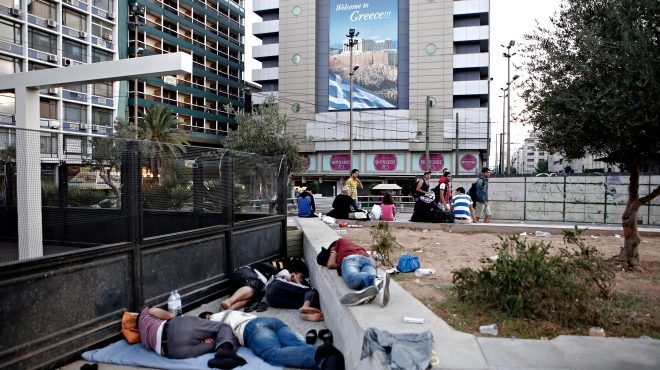News
Get out! In Greece recognized refugees have to leave their accommodation

The announced eviction of recognized refugees from accommodation in ESTIA flats and official refugee camps will lead to homelessness and destitution for many as very few steps have been taken so far by the Greek authorities in practice to secure the refugees’ autonomous living and equal integration into Greek society.
In early February, the Greek Ministry of Migration Policy announced the gradual termination of accommodation to beneficiaries of international protection living in refugee camps in mainland Greece. The first group of beneficiaries of international protection required to leave their accommodation were those recognized before the end of July 2017, and the deadline given for their exit was 31 March 2019.
In early March 2019, the Ministry of Migration Policy issued a Ministerial Decision stating amongst others that those asylum-seekers benefiting from the ESTIA Programme would in general continue being provided with accommodation and cash assistance for an additional period of six months upon receipt of the decision granting them international protection status. The Greek authorities have announced that 204 beneficiaries of international protection – recognized before the end of July 2017 – face eviction from their ESTIA accommodation.
Beneficiaries of international protection did not and do not yet have access to a comprehensive plan and programme for their integration
PRO ASYL/ Refugee Support Aegean (RSA) reiterate that despite the recently presented national integration strategy, beneficiaries of international protection did not and do not yet have access to a comprehensive plan and programme for their integration that would provide Greek language learning and their participation in training or job seekers’ programmes. This results in beneficiaries of international protection finding themselves in a disadvantaged position in comparison to the local population seeking employment.
In March 2019, the Ministry of Migration Policy announced the launch of the »HELIOS 2« programme. However, the programme is expected to start in June 2019 and provides integration activities and rental support only for six month and only for 5.000 recently recognized refugees. Further, the Greek authorities have not ensured in practice equal access to the national system of social support to beneficiaries of international protection. Thus, the accommodation benefit is granted only to those who are legally resident in the country for at least five years and can provide a rental agreement document. As a result, refugees recognized after 2014 are being excluded from access to this benefit. In addition, the social solidarity benefit (KEA) is granted under specific requirements to those being able to provide a valid rental agreement of a minimum six-month duration or have been given a homelessness certificate by the Municipality social services. PRO ASYL/ RSA have documented extensively the great difficulties that certain categories of homeless refugees have to obtain a homelessness certificate.
Refugees recognized after 2014 are being excluded from access to accomodation benefit
Although those refugees evicted from their accommodation will receive an extension of cash, in view of the above, PRO ASYL/ RSA strongly believes that on its own the extension will not cover their basic living needs beyond the stipulated three-month period. In practical terms, the extension of cash assistance for a period of three months will not ensure that they can find other accommodation and have access to social benefits as individuals applying for KEA have to provide a rental agreement for a minimum of six months. Under such conditions, the eviction of beneficiaries of international protection from refugee camps or flats will lead them to homelessness and inability to cover their basic needs as they will not be able to find employment or receive social benefits.
Attention should be drawn specifically to cases of refugees asked to leave their accommodation, by the end of March 2019, where legal procedures had not been followed. In these cases, the authorities did not adhere to the requirements of Greek legislation regarding the type of the administrative act issued, the prior-hearing of the person affected and the right to judicial protection. The refugees concerned were asked to sign a letter and no formal procedure was followed to end their accommodation. PRO ASYL/ RSA has been monitoring and documenting such cases for asylum-seekers living in flats of the Attica ESTIA programme and Northern Greece official accommodation sites.
PRO ASYL/ RSA urges the Greek authorities to adhere to their obligations under international, EU and national legislation and ensure the minimum of a dignified and secure living to all individuals residing in the country including refugees and stop taking steps that lead this particularly vulnerable group to homelessness and destitution.
(RSA)